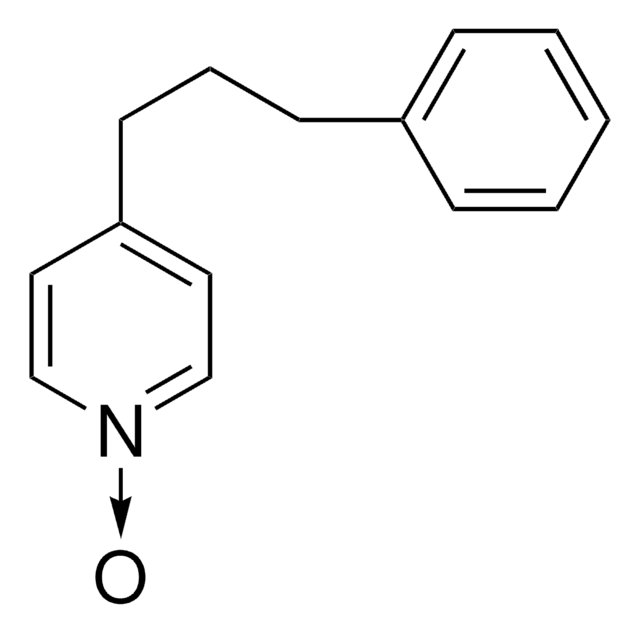482358
Ferrocenium tetrafluoroborate
technical grade
Synonym(s):
Bis(cyclopentadienyl)iron tetrafluoroborate, Dicyclopentadienyliron fluoborate, Dicyclopentadienyliron tetrafluoroborate
About This Item
Recommended Products
grade
technical grade
Quality Level
reaction suitability
core: iron
reagent type: catalyst
mp
178 °C (dec.) (lit.)
SMILES string
[Fe+].F[B-](F)(F)F.[CH]1[CH][CH][CH][CH]1.[CH]2[CH][CH][CH][CH]2
InChI
1S/2C5H5.BF4.Fe/c2*1-2-4-5-3-1;2-1(3,4)5;/h2*1-5H;;/q;;-1;+1
InChI key
ZSPXIHLQPWVOQR-UHFFFAOYSA-N
Looking for similar products? Visit Product Comparison Guide
Related Categories
General description
Application
- an oxidizing agent in the synthesis of the monocationic Co(II)complex [CpCo(azpy)]+
- a Lewis acid catalyst in epoxide ring opening and to activatethe carbonyl group for addition or cycloadditions reactions
- an oxidizing agent when used in conjuntion with a Cl-source
- a reversible redox reagent between stannole dianion and bistannole-1,2-dianion
Signal Word
Danger
Hazard Statements
Precautionary Statements
Hazard Classifications
Eye Dam. 1 - Skin Corr. 1B
Storage Class Code
8A - Combustible corrosive hazardous materials
WGK
WGK 3
Flash Point(F)
Not applicable
Flash Point(C)
Not applicable
Personal Protective Equipment
Choose from one of the most recent versions:
Already Own This Product?
Find documentation for the products that you have recently purchased in the Document Library.
Customers Also Viewed
Our team of scientists has experience in all areas of research including Life Science, Material Science, Chemical Synthesis, Chromatography, Analytical and many others.
Contact Technical Service

